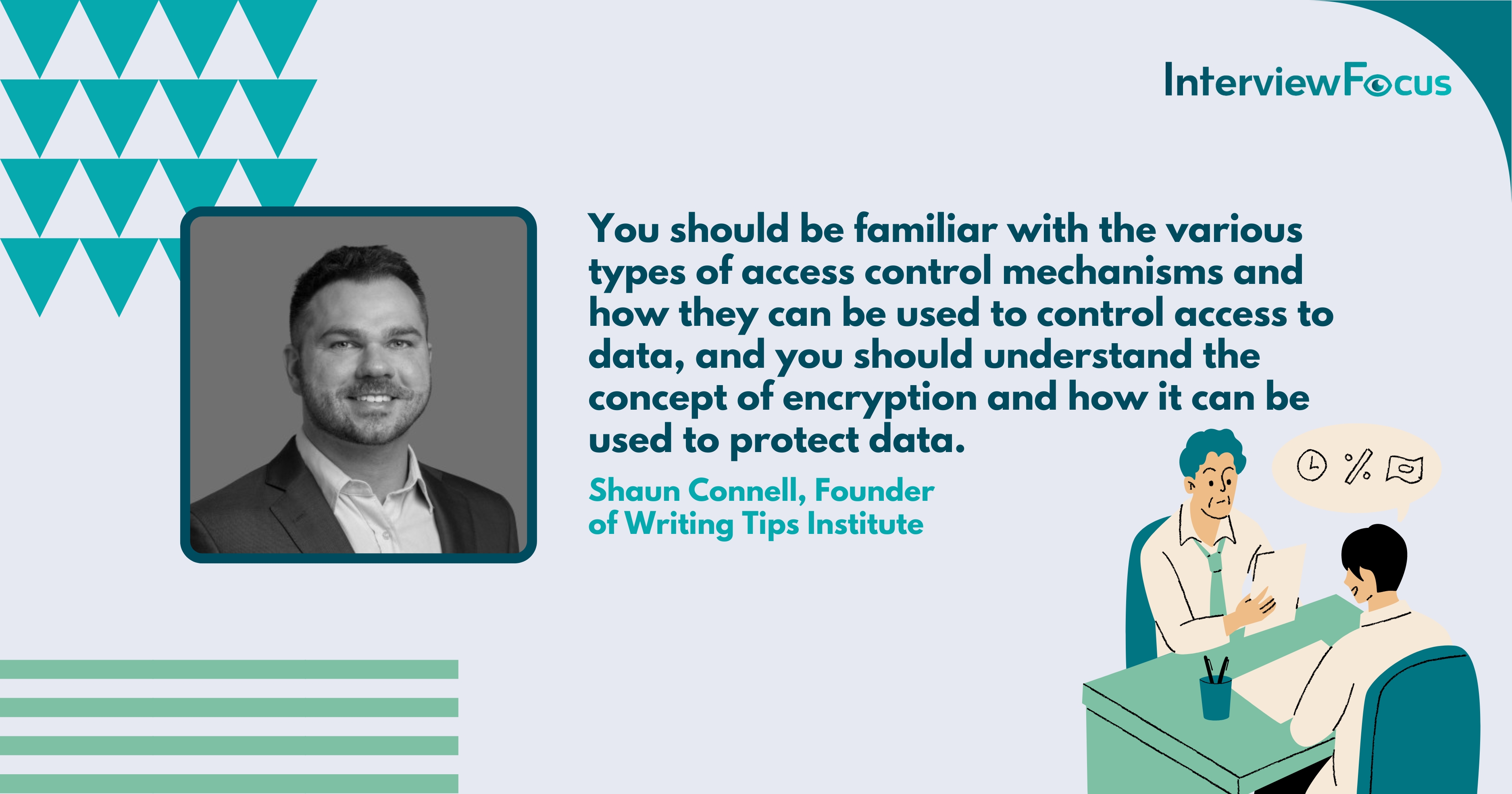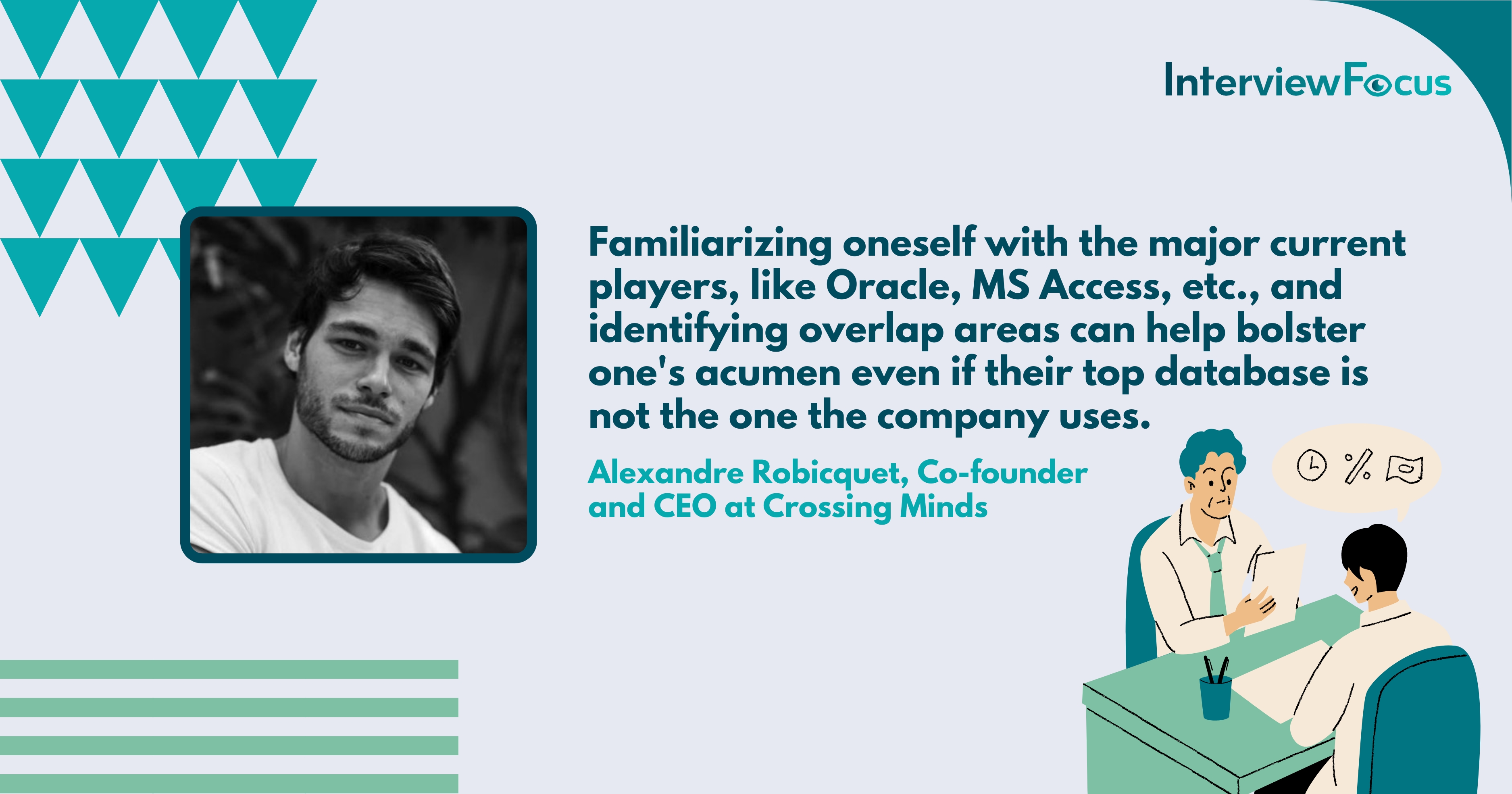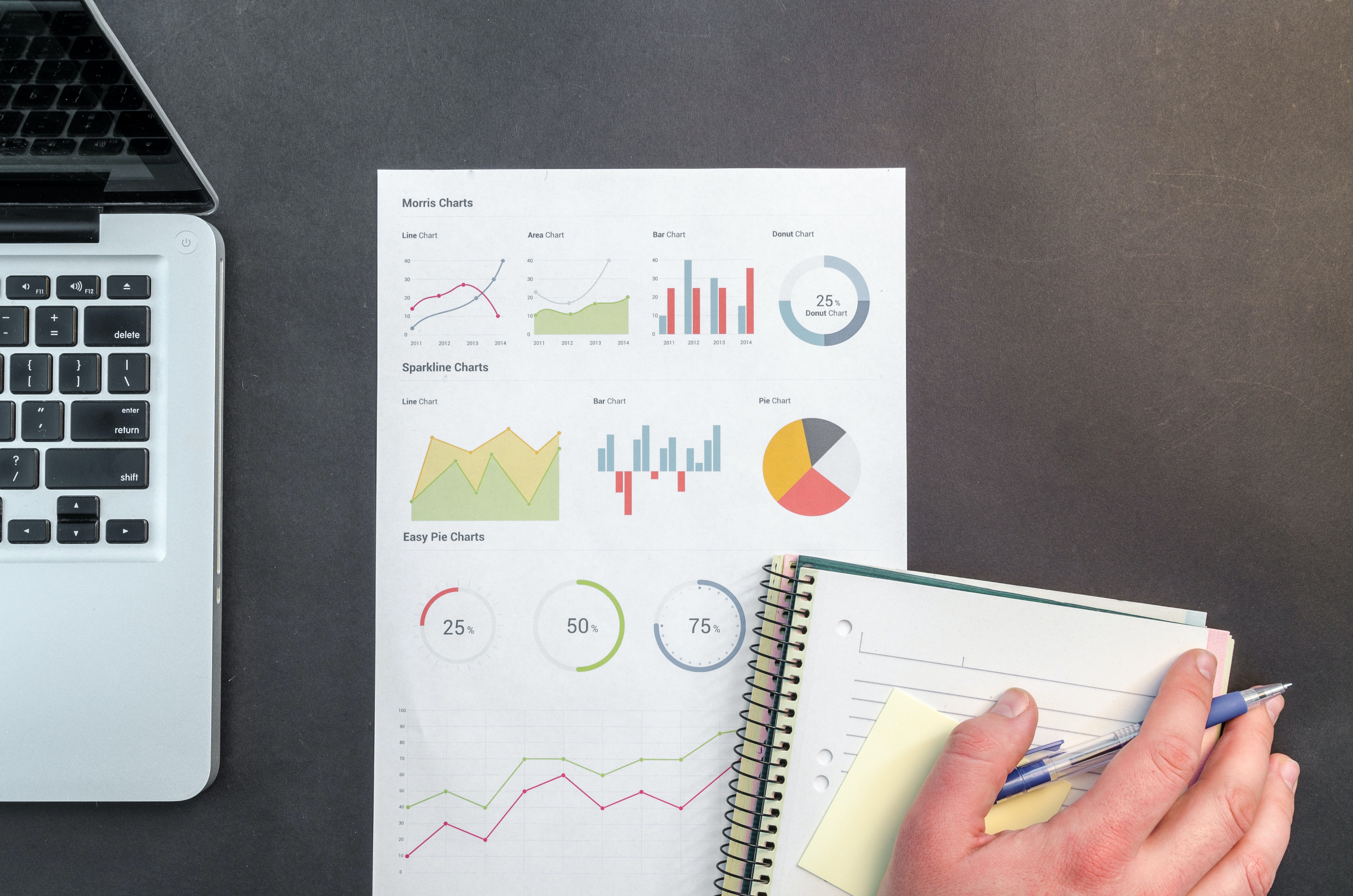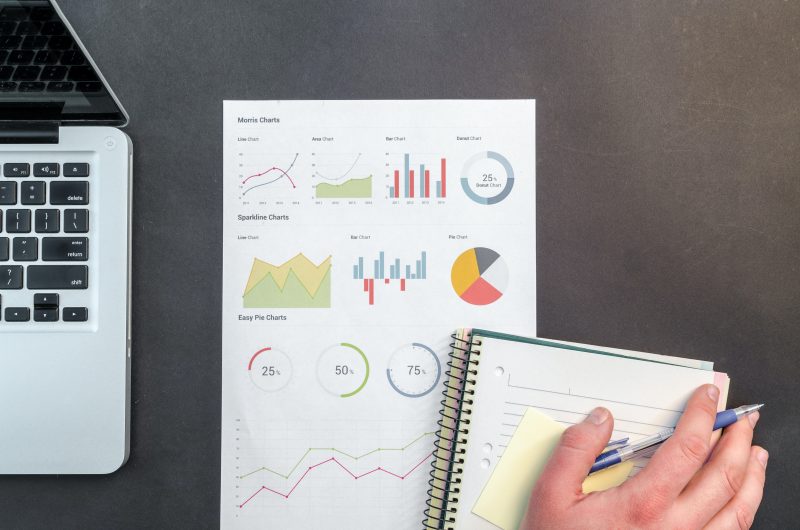How Do I Prepare for a Database Interview?
From preparing for interpersonal questions to understanding the types of database relationships, here are 10 answers to the question, “How do I prepare for a database interview?”
- Prepare for Interpersonal Questions
- Be Well-Versed in Database Security and Access Control
- Show that You Have Real-world Experience
- Practice Ways to Say “I Don’t Know”
- Understand Both Optimistic and Pessimistic Locking.
- Understand the Interview Format
- Prepare For The Most Commonly Asked Questions
- Brush Up On DBMSs
- Familiarize Yourself With Common Database Terminologies
- Understand The Types of Database Relationships
Prepare for Interpersonal Questions
As an interviewer for databases, one of the biggest tips I have picked up is to come in prepared to answer both technical and interpersonal questions. Knowing the role and what technology you will be working with ahead of time can make all the difference in being able to answer technical questions fully. However, make sure to brush up on your soft skills as well, as interviewers may ask probing questions about interpersonal interactions and problem-solving too.
Lorien Strydom, Executive Country Manager, Financer.com
Be Well-Versed in Database Security and Access Control
My tip for getting ready for a database interview is to be well-versed in database security and access control mechanisms. This is a must-ask question in interviews, so you should be sure to brush up on the basics.
You should know the different security models and how they work, as well as the different authentication methods and authorization policies. You should be familiar with the various types of access control mechanisms and how they can be used to control access to data, and you should understand the concept of encryption and how it can be used to protect data.
Shaun Connell, Founder, Writing Tips Institute

Show that You Have Real-world Experience
In preparation for an interview for a database position, it is important to understand that you will be asked questions about your experience with databases and how you would approach problems in a real-world situation. Therefore, it is important to make sure that you have some real-world experience with databases and have thought about how you would approach problems.
One way to prepare for an interview is to think about some problems that you have faced in the past and how you would go about solving those problems using a database. Then, write down your approach and how you would implement it. This will help you to prepare for an interview and show that you have some real-world experience and thought about how you would approach real-world problems using a database.
Luciano Colos, Founder and CEO, PitchGrade
Practice Ways to Say “I Don’t Know”
It’s OK not to know the answer, but showing that you can give an honest response is important. When preparing for a database interview, it is crucial to practice ways to say “I don’t know” without coming across as unprepared or lacking effort.
Focus on phrasing your response to show your willingness and eagerness to learn more about the topic. Practice saying this out loud to help you feel more confident when it comes time for the interview. Doing this will demonstrate that you are willing to take on any challenge and have a positive attitude.
Mariusz Michalowski, Community and Career Expert, Spacelift
Understand Both Optimistic and Pessimistic Locking
It is crucial to have a deep understanding of optimistic and pessimistic locking during a database management interview. Being able to explain the difference between the two is a fundamental aspect of this field and demonstrates your competence to the interviewer. Showing your knowledge of the topic highlights your understanding of transaction control, which is an essential aspect of database management.
Burak Özdemir, Founder, Online Alarm Kur
Understand the Interview Format
If you’re preparing for a database interview, be sure to familiarize yourself with the interview format. Who will you be meeting with, and how much time will you have to answer questions? Is it a more technical interview focused on coding, or do you just need to know how to have a solid conversation showing your overall understanding of databases?
Kelli Anderson, Career Coach, Resume Seed
Prepare For The Most Commonly Asked Questions
Common questions are pretty straightforward. If you are not able to answer such questions, then your chances of selection are less. Like many other students, you are not aware of the difficult query-related questions. Instead of bothering about them, prepare some easy questions that can clear your basics and then move to the more difficult level.
Commonly asked database questions are from the below topics:
- Data redundancy and inconsistency
- Data isolation
- Atomicity of updates
- Difficulty in accessing data
- Security problems
- Concurrent access by multiple users
These are some topics that I believe are frequently asked in database interviews. You can also prepare questions from other common topics as well. Practice the most common questions to ensure you ace the interview.
Saikat Ghosh, Associate Director – HR and Business, Technource
Brush Up On DBMSs
Brushing up on all the major DBMSs is one of the best practices to prepare for a database interview. Demonstrating one’s expertise over their most familiar databases is often necessary in a database interview.
Familiarizing oneself with the major current players, like Oracle, MS Access, etc., and identifying overlap areas can help bolster one’s acumen even if their top database is not the one the company uses.
Alexandre Robicquet, Co-founder and CEO, Crossing Minds

Familiarize Yourself With Common Database Terminologies
Familiarize yourself with common database concepts and terminology for a database interview, such as normalization, indexing, SQL syntax, and data modeling. Practice writing queries and solving problems related to database design and optimization. This will help you feel more confident and prepared during the interview. Additionally, research the company and their specific database systems to better understand what skills and experience they may be looking for.
Sam Chan, Founder, PiPiADS
Understand The Types of Database Relationships
If you’re heading into a database interview, make sure you know the types of relationships within a database. You should be familiar with the most common relationships and should study some of the more complex ones, too. The interviewer is looking to see how much you know about relational databases, so you need to study these terms and relationships if you want to do well in your interview.
Scott Krager, Founder, Key Fob Replacement






